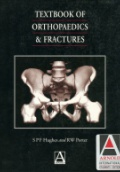- First introductory text in a rapidly growing field
- Well adapted for use in graduate courses on kinetic theory
- Includes chapter summaries and broad range of exercises throughout the book
- Tutorial computer programs, downloadable from linked web page
- Wide ranging applications in physics, astronomy, engineering, and chemistry
"Kinetic Theory of Granular Gases" provides an introduction to the rapidly developing theory of dissipative gas dynamics - a theory which has mainly evolved over the last decade. The book is aimed at readers from the advanced undergraduate level upwards and leads on to the present state of research. Throughout, special emphasis is put on a microscopically consistent description of pairwise particle collisions which leads to an impact-velocity-dependent coefficient of restitution. The description of the many-particle system, based on the Boltzmann equation, starts with the derivation of the velocity distribution function, followed by the investigation of self-diffusion and Brownian motion. Using hydrodynamical methods, transport processes and self-organized structure formation are studied. An appendix gives a brief introduction to event-driven molecular dynamics. A second appendix describes a novel mathematical technique for derivation of kinetic properties, which allows for the application of computer algebra. The text is self-contained, requiring no mathematical or physical knowledge beyond that of standard physics undergraduate level. The material is adequate for a one-semester course and contains chapter summaries as well as exercises with detailed solutions. The molecular dynamics and computer-algebra programs can be downloaded from a companion web page.
Readership: Graduate students in physics and astronomy; also chemistry, and chemical and mechanical engineering. Professionals and researchers in statistical mechanics, fluid mechanics, and kinetic theory.
